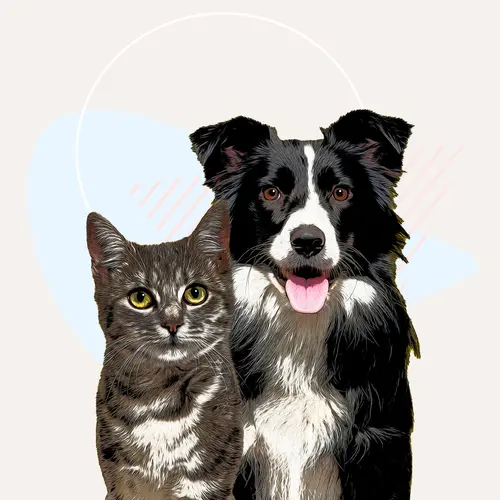Otters are cute, furry water animals that hold hands and groom each other to bond. Because they’re so cute, there’s been a high demand to own them as pets, but they may not be a good choice.
Illegal poaching and sales have hurt the global otter population. Pet otters are sought after in many Asian countries like Japan, Thailand, and Malaysia.
Do Otters Make Good Pets?
Freshwater otters live in family groups of up to 15 in the wild. When they’re captured and sold as pets, otters are not living their full, natural lives. Your bathtub or pool can’t substitute for the large bodies of water otters are naturally found in.
The Asian small-clawed otter is the smallest species of otter. It is the most common type trapped and sold as pets. Many Asian countries have taken measures to protect them through bans and regulation.
Otters need space to roam. They aren’t easily housetrained and they’re very active, social animals. Keeping an otter as a solitary pet can make them very sad. Not having enough entertainment or putting stress on your pet otter can also lead to destructive, aggressive behavior. Living in captivity is simply not a good life for an otter.
Problems With Pet Otters
Otters are wild animals. Owning native otters is illegal in many countries including the UK, Japan, and the U.S. Yet otters are still being illegally smuggled into these countries to be sold as pets.
Loud noises. Otters make loud whistling or screeching noises. They can be very destructive when they don’t get what they want.
Strong odor. Otters have an odor that lingers around them. Their unpleasant smell can permeate a home if they live indoors. They also mark their territory by smearing their feces around, which contributes to the odor.
Aggression when stressed. When otters are agitated or stressed they can bite and become aggressive. Their bite is sharp and piercing. If you are bit by an otter, you'll need to treat the wound immediately. Also watch for signs of bacterial infection to the wound.
Messy housemates. Otters can be destructive. If left untrained, they can leave many droppings around the house. They are wild animals and do not like to be restrained.
Caring for an Otter
Owning an otter is a big commitment. If you have adopted one, you’ll need to have the proper habitat for it. They need plenty of space and care.
An otter’s enclosure needs to be large enough for them to get exercise and forage. They need a much larger enclosure than a typical dog. Likely, your otter will spend most of its life in the enclosure. Otters need a tropical climate. Their ideal temperature is 75 to 85 degrees. They’ll need a dry area as well as a pool. If they are constantly wet, they can develop health conditions.
Otters like to climb and dig, so your enclosure will need a top and to be dug into the ground. The best enclosure for an otter is outside. Living inside comes with many challenges, like cleaning up otter feces and keeping your furniture intact. Otters can be destructive and are difficult to housetrain.
An otter’s diet can vary. You can give them a complete cat food as the base, but make sure that over half of their diet is meat-based. You should include fish. Supplement their diet with vegetables, soft-boiled eggs, and insects.
Safety Concerns
Otters can carry and transmit dangerous bacteria like Salmonella and Streptococcus phocae to you and your other animals.
Otters can also be loud and destructive. They can cause damage to your home and hurt other animals in your family.
Dogs and otters can transmit diseases to each other as well. Dogs can infect otters with canine distemper and rabies. Otters can give dogs Salmonella, just like humans. Otters may bite when threatened and are not good housemates.
Wild otters are not fit to live in your home environment.
They need plenty of space to roam and to be with their family. They thrive in social settings within their natural habitat. Sadly, due to the difficulties that come with owning an otter, many are abandoned or discarded to rescue groups.

